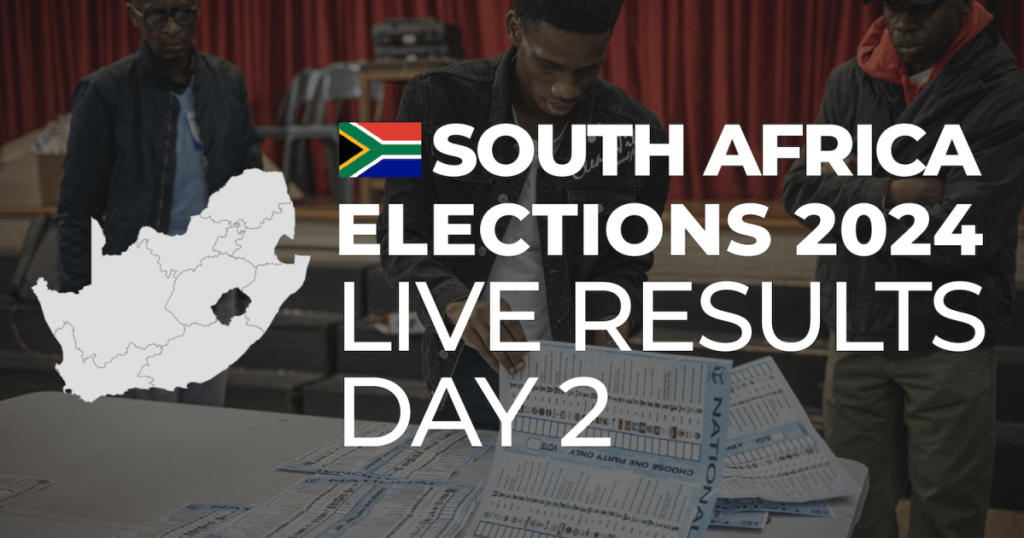With more than 90 percent of votes counted, the ruling African National Congress (ANC) in South Africa is currently leading with just over 40 percent share of the national vote. The results show that the ANC could potentially lose their majority and be forced to seek coalition partners, marking a significant challenge to the ANC’s political dominance since the end of apartheid. The Democratic Alliance (DA), the country’s principal opposition party, is currently in second place, followed by the MK party and the Economic Freedom Fighters (EFF).
If the ANC does not receive more than 50 percent of the vote, which seems likely based on the current results, they will need to make a deal with other parties to form a coalition government. The choice of coalition partner will depend on the support needed to cross the 50 percent mark. While there is a possibility for the ANC to lose some power, it is unlikely to be completely removed from power unless it performs much worse than anticipated. This scenario sets the stage for a potentially significant shift in South Africa’s political landscape.
Four of the biggest players in the 2022 elections are the ANC, the DA, MK, and EFF. The ANC has historically been the dominant party, winning all national elections since the end of apartheid in 1994. However, its margin of victory has decreased over the years, with the lowest margin achieved in the 2019 elections at 57.5 percent. The DA has consistently come second in past elections, making them a key player to watch in this year’s election as well. The EFF has also gained prominence in recent years, presenting a challenge to the ANC’s traditional dominance.
The lower house of parliament is currently represented by 400 members of 14 political parties, allocated proportionally based on the votes each party received in the 2019 elections. The ANC currently holds 230 seats, followed by the DA with 84 seats, the EFF with 44 seats, and the Inkatha Freedom Party with 14 seats. Ten other parties make up the remaining 28 seats, highlighting the diversity of political representation in South Africa’s National Assembly.
In South Africa, the president is elected by the members of the National Assembly, who are elected by the voters. The president is elected by a simple majority, with 201 or more votes needed to determine the presidency. If the ANC secures the majority in the current election, President Cyril Ramaphosa is likely to be re-elected for his second and final five-year term. The final election results will be announced by the Independent Election Commission on Sunday, with the verification process potentially taking longer due to the close competition and potential need for coalition negotiations.












